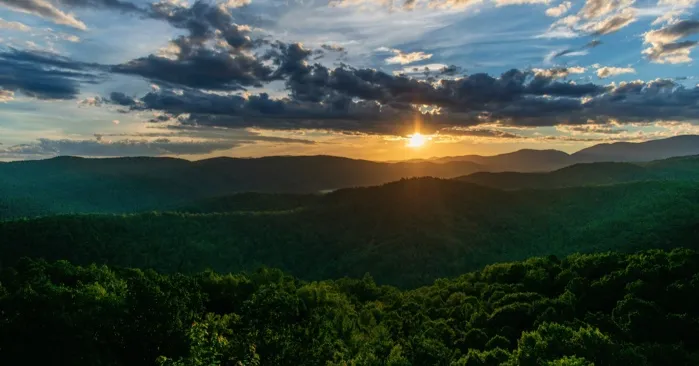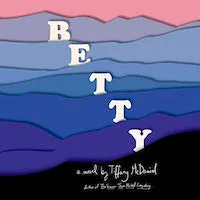
Appalachian Audiobooks That Taught Me How to Say Goodbye
We Appalachians possess an intense understanding of place and the importance of knowing where you come from. So when we talk about the waves of outward migration from the region, a hushed sense of sorrow hovers over the conversation, a quiet sadness for the loss of those who have left. But we understand. Our home is much beloved but far from perfect.
I’m one of those young people who migrated away from the mountains pursuing better opportunities. But I couldn’t quite leave Appalachia behind. For the last 12 years, I’ve lived on the very edge of the region, one foot in the mountains, one foot inching towards the South Carolina low country.
During the lockdown for COVID-19, I bunkered down and ached for home, tapping through old pictures of my grandparents’ log cabin and the beautiful hills of the Ohio River Valley on my phone. Before I knew it, I went from flipping through photos to scrolling through audiobooks, assembling quite the list of Appalachian novels, memoirs, and poetry collections, whatever might give me a glimpse back home.

There aren’t many novels set in Appalachian Ohio, but Tiffany McDaniel recently published her second novel set there. So I reached for Betty like it was a lifeline, anticipating the feeling of the Ohio hills tucking in around me. In the novel, Betty is born to a white mother and a Cherokee father, and like many biracial kids, Betty feels caught between two worlds. As she comes of age in the ’60s and ’70s, Betty grows to love the land around her, McDaniel’s prose beautifully describes the landscape: hills upon hills covered in trees and flourishing with wildlife. In the fall, the sides of the mountain alight with vibrant reds, oranges, and yellows.
Betty’s childhood isn’t easy, and McDaniel tells her story in the vein of the Appalachian tradition of sharing family folklore, which fits the novel since it was inspired by her mother’s life. We as listeners are right there, sitting on Betty’s front porch watching as she and her father work in the garden, getting some last-minute work in as dusk falls over their patch of land set back into the hills. McDaniel evokes this feeling so strongly, and the book’s narrator, Dale Dickey, captures Betty’s voice perfectly.

But I haven’t lived in Southern Ohio for years. What about the place where I live now? To that end, I stumbled across F*ckface: And Other Stories by Leah Hampton. Each story focuses on a character faced with a decision or series of decisions that might seem mundane on the surface but ultimately prove to be life-changing choices. Hampton doesn’t just focus on one area of Appalachia. Instead, her characters come from all over the region, traveling back and forth visiting family or heading on a pilgrimage to Dollywood. In these stories, I caught glimpses of the people I grew up with and those who I have met in adulthood here in the South.
Like any region, Appalachia isn’t a monolith. These hills contain multitudes of perspectives and life experiences, and this short story collection constructs a beautiful mosaic of the diversity found here. Somehow, Hampton captures that beauty within her slim short story collection. Sophie Amoss performs the audiobook with such a range of voices, adding to each story’s unique perspective.
Last week, I packed up my library, taping shut the final box and placing it on the pile that seemed to take up half of my living room. After a summer of longing to be back home in the mountains, as fate would have it, I prepared to move farther away from it. But these audiobooks reassured me that there will always be more Appalachian writers sharing their stories with the world, reminding those of us who have left that Appalachia will always be there, waiting for us to come home.











